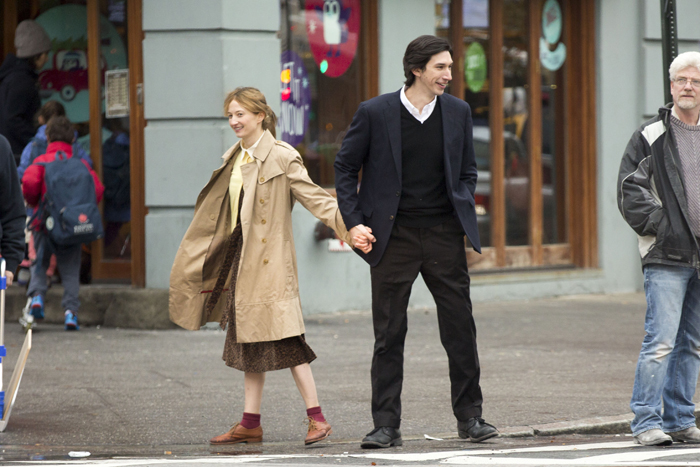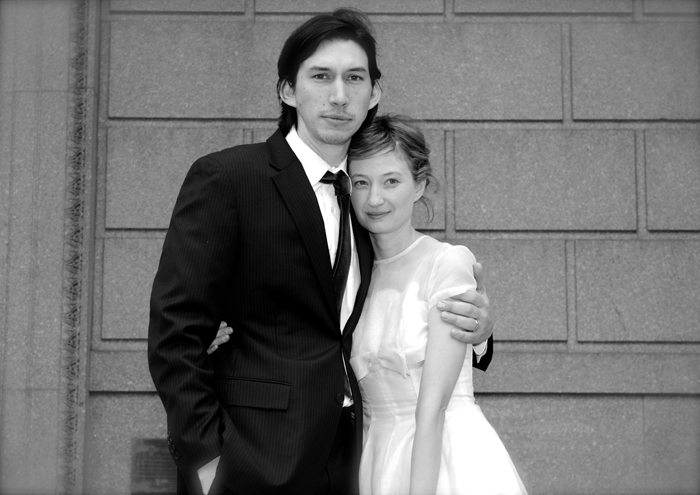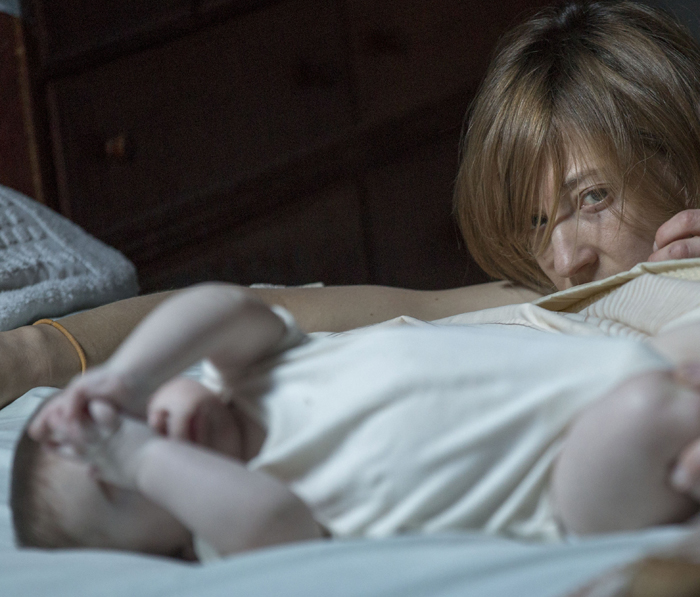A New York indie flick with Adam Driver sounded like the perfect start to a Monday morning, but Hungry Hearts is not quite the complicated love story that you might expect.
Director Saverio Costanzo’s Italian drama explores a turbulent parental relationship and questions who knows best when raising a child. Engineer Jude (Adam Driver) and Italian U.N worker Mia (Alba Rohrwacher) first meet when they get locked in the tiny bathroom of a Chinese restaurant.

As if the claustrophobia isn’t uncomfortable enough, Jude is in the throws of a bout of food poisoning. The cringe-worthy embarrassment is palpable, but it’s one of the only laughs you’re going to get out of this film, so make the most of it.
From unlikely beginnings a romance blossoms and newcomer Mia becomes part of Jude’s world (though not comfortably). When she falls pregnant, the couple marry and have a jolly knees-up at a low-key Russian restaurant on Brighton Beach. Jude serenades Mia (be prepared for Driver to melt your heart), everyone is in good spirits and she meets his somewhat overbearing mother Anne (Roberta Maxwell) for the first time.

Throughout the pregnancy, Mia is underweight and has a strong aversion to the doctor with his ultrasound machine and advice to eat more. Her natural water-birth doesn’t go according to plan and after an emergency Caesarian, the baby is born malnourished.
The couple’s Upper West Side apartment becomes their cocoon as they screen calls from friends and shut out the world. Mia becomes increasingly frail and germophobic and won’t allow the baby (bizarrely unnamed in the film) to be exposed to fresh air, sunlight or any other human contact. Jude is concerned when the baby doesn’t grow or put on weight, due to his meagre vegan diet, and seeks advice from Dr Bill who recommends an intense course of protein-based food to be sourced from meat.
Of course Mia hits the roof and a battle of wills ensues, resulting in her appeasing Jude while secretly feeding the baby a laxative oil after meals to purify his body of the meat. The child fails to grow and Jude seeks advice from a social worker while slipping out of the apartment to speed-feed the baby in the safety of a nearby church.
The situation begins to get desperate and Jude arranges for his mother to take the child away from Mia and serves her a legal document prepared by the social worker. This is where the film takes an absurd turn and Costanzo’s heavy-handedness blurs the lines between gritty drama and fantasy. Perhaps this is a conscious decision, as the fish-eye lense and perturbing music add a surreal, sinister element to the atmosphere of distrust.

Jude’s mother’s country lodge is presented as an extravagant hotbed of carnivorous (and what Mia would deem impure) activity with numerous mounted stag heads, guns and a roaring open fire. Of course when Mia visits, Anne is frying up a fat, juicy burger with the smoke filling the entire floor.
Mia’s visits all end badly, however she manages to take back control from ‘the enemy’ and spend a few joyful moments alone with her child. The dramatic ending however provides a convenient way for the parents to avoid having to rebuild relations or resolve their issues.
The film is quite a harrowing journey where the early days of young hipster love are soon forgotten. It would be easy to blame Mia for hampering the child’s health, but Costanzo challenges where to place your sympathy with her honest intentions, Jude’s unexpected domestic violence and Anne’s blinkered disregard for Mia’s values.
Hungry Hearts is beautifully shot and there are stand-out performances from Adam Driver and the fantastic Alba Rohrwacher but it falls a little short on tackling such a complex human issue.

You Might Also Like